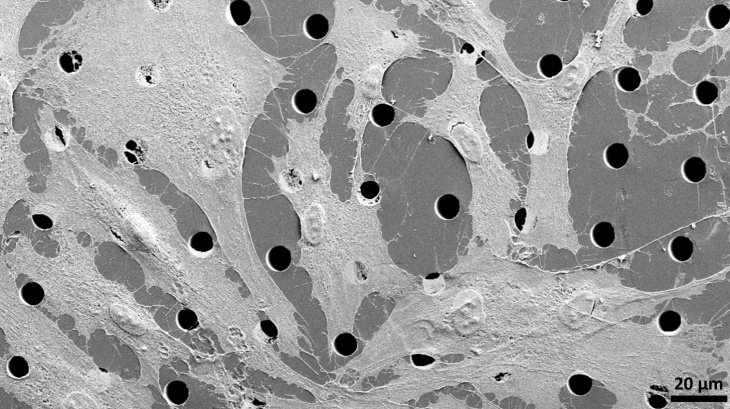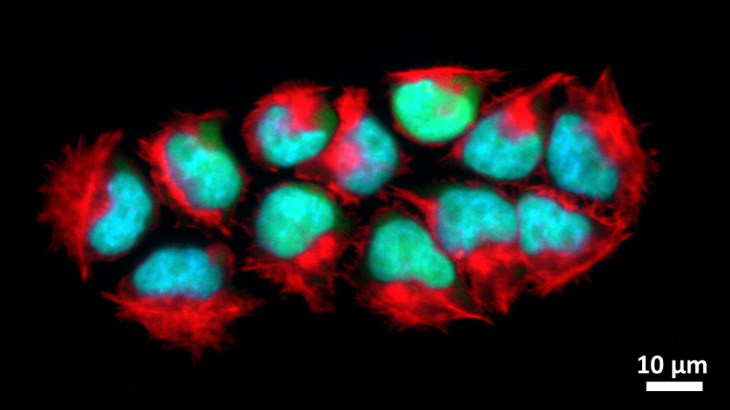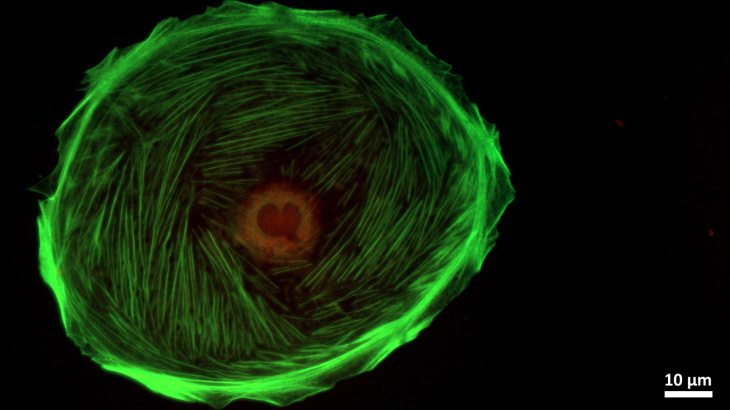Polymers in Regeneration
The research in our “Polymers in Regeneration” department contributes to a fundamental understanding of the interactions between materials and stem cells. The aim is to identify and validate criteria for designing biointeractive materials. For this purpose, we use correlative, high-resolution, image-based screening methods and computer-assisted analyses to study in detail the processes at the interface between cells and multifunctional substrates. Cells are examined individually, but are at the same time analyzed in relation to the surrounding cell population. The insights gained can be useful in regenerative medicine in two ways: on the one hand, undesired interactions between the material and cells can be prevented. On the other, certain material effects can be used in a targeted manner.
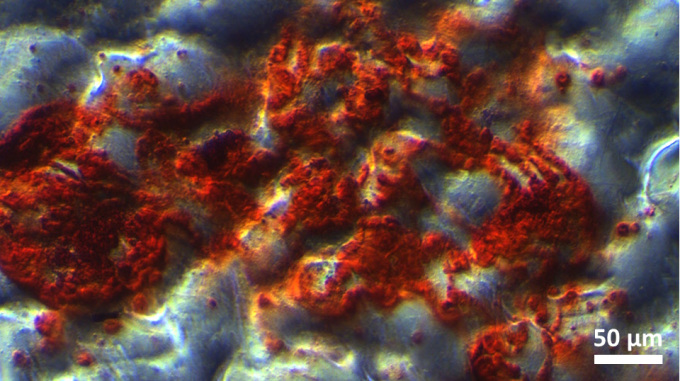
Osteogene Differenzierung von humanen mesenchymalen Knochenmarksstammzellen (hBMSCs) Poly(Styrol-co-Acrylnitril) Oberfläche mit Mikrorauheit (Knochen-Zell-spezifische Marker in Rot: Alizarin Red S)
Osteogenic differentiation of human bone marrow mesenchymal stem cells (hBMSCs) on poly(styrene-co-acrylonitrile) surface with micro-scale roughness (Bone cell-specific markers in red: alizarin red S)
The department Polymers in Regeneration places value on the investigation of cell and biomaterial interactions. The aim is to analyse the various material features for cell material interactions and to determine their influence on (stem) cell function, self-renewal and tissue regeneration. The natures of biomaterials, such as the elasticity, roughness, geometry, anisotrophy and surface chemistry could strongly influence the functions and fate of stem cells.
Aiming to provide knowledge based information on the design and development of novel biomaterials using the state of the art technologies, our research is directed to investigate the process and mechanism of crosstalk between stem cells and various biomaterials with different physical and chemical properties.
Furthermore, the influence of biomaterials on the cellular behavior of these stem cells is studied. Based on rational design principles, our understanding on how biological, chemical and physical cues as well as their spatiotemporal coordination regulate cell response could consequently improve the engineering of functional biomaterials.
Profile
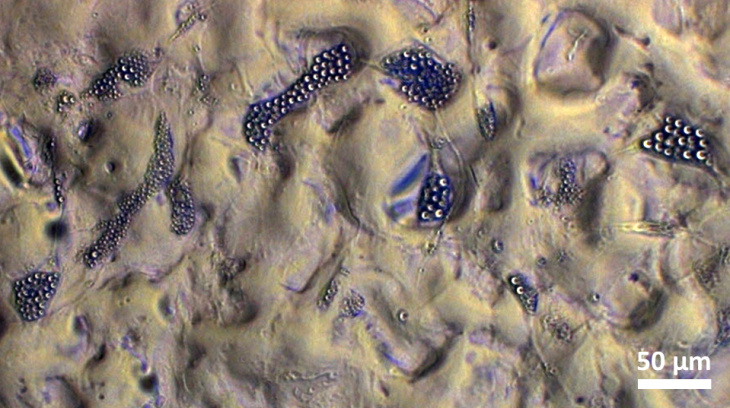
Lipid droplet formation indicates adipogenic differentiation of human bone marrow mesenchymal stem cells (hBMSCs) on poly(styrene-co-acrylonitrile) surface with micro-scale roughness. Photo: Hereon
Regenerative Medicine holds great promise to alleviate morbidity and mortality in patients suffering from organ failure. Accumulating clinical and experimental evidence indicate that stem cells are promising cell types to reconstruct the damaged tissues in the treatment of various degenerative disorders due to the self-renewing and differentiation potential.
Stem cells are very sensitive to their local extracellular environment. A range of stem cell responses, such as cell adhesion, viability and differentiation, can be differentially affected by particular local environment. Local extracellular environment could modulate different signaling pathways that govern stem cell behavior and organ development, and influence endogenous tissue repair and regeneration.
Another focus of the Department Polymers in Regeneration is the interaction of immune cells with biomaterials. Almost every implant causes inflammatory reactions, which can lead to swelling and pain at the side of implantation and could in the worst case result in implant rejection requiring its replacement.
One goal is to determine the immunological characteristics physicochemical and mechanical properties of biomaterials facilitate the development of immunologically inert or even immune suppressive biomaterial. To optimally support regenerative processes, immune-compatible biomaterials capable of controlling stem cell behavior are investigated and developed in the department.

